試す 金 - 無料
Confucius & Socrates
Dig Into History Magazine for Kids and Teens
|May/June 2017
Some teachers are so inspirational that their influence lives on long after they die.

This is true of both the Chinese philosopher Confucius and the Greek philosopher Socrates. Their reputations and impact have grown through the centuries, even though people still disagree about what they actually said.
Meet Confucius
Kongzi or Kongfuzi, better known in English as Confucius, was born in Qufu, China, in 551 b.c.e. He lived during a time when traditional values seemed to be deteriorating. His main purpose as a teacher was to restore the Chinese principle of ren, which can mean “goodness,” “loving others,” or “humaneness.” His philosophy stressed the motto: “What you do not wish for yourself, do not do to others.” If this idea seems familiar, that is because it is common to many world religions and is similar to the biblical golden rule: “Do unto others as you would have them do unto you.”
The teachings of Confucius focus on treating people with compassion, especially in family relationships and in interactions between political leaders and their followers. Confucius wanted people to value education, be humble, and have good manners. He also taught the importance of respect for elders and ancestors, known as “filial piety.”
Although Confucius died before his ideas became well known, his students wrote down his most important sayings. Over time, these were collected into a book that became known as the Lunyu, or The Analects of Confucius.
このストーリーは、Dig Into History Magazine for Kids and Teens の May/June 2017 版からのものです。
Magzter GOLD を購読すると、厳選された何千ものプレミアム記事や、10,000 以上の雑誌や新聞にアクセスできます。
すでに購読者ですか? サインイン
Dig Into History Magazine for Kids and Teens からのその他のストーリー

Dig Into History Magazine for Kids and Teens
Worshiping Heaven
For almost 500 years, emperors of the Ming and Qing dynasties offered sacrifices and prayers at the Temple of Heaven in Beijing.
3 mins
November/December 2016
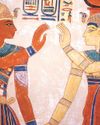
Dig Into History Magazine for Kids and Teens
Peace Reigns
The news spread throughout Egypt—a new pharaoh, Ramses III, now sat on the throne.
4 mins
September 2017
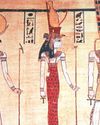
Dig Into History Magazine for Kids and Teens
Problems To The East
Ramses III, the second king of Egypt’s 20th Dynasty, is viewed as Egypt’s last truly great pharaoh.
3 mins
September 2017
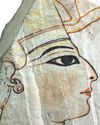
Dig Into History Magazine for Kids and Teens
The Successors
Following the death of Ramses III, eight pharaohs, all named Ramses, ruled Egypt.
1 mins
September 2017
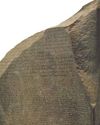
Dig Into History Magazine for Kids and Teens
Stone Code
Hundreds of ships, led by the French general Napoleon Bonaparte, sailed from France in May 1798 on a secret mission.
1 mins
September 2017

Dig Into History Magazine for Kids and Teens
Up & Away!
Eclipse observers often face unexpected difficulties, sometimes on their way to their chosen sites and sometimes at a site itself.
2 mins
January 2017

Dig Into History Magazine for Kids and Teens
Edison's Eclipse Adventure
Thomas Edison (1847–1931) is the best-known inventor in American history.
3 mins
January 2017
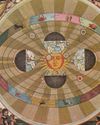
Dig Into History Magazine for Kids and Teens
Digging Up Copernicus
The scientist “who made the Earth a planet” is how the Harvard-Smithsonian astronomer Owen Gingerich refers to Nicolaus Copernicus (1473–1543). Copernicus’ path breaking book, On the Revolutions of the Heavenly Spheres,challenged the centuries-old belief that the Earth stood stationary at the center of the cosmos.
2 mins
January 2017
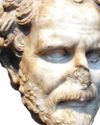
Dig Into History Magazine for Kids and Teens
Demosthenes & Cicero
Even today, more than 2,000 years after they lived, Demosthenes and Cicero are still considered two of history’s most outstanding orators.
4 mins
May/June 2017
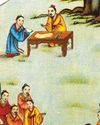
Dig Into History Magazine for Kids and Teens
Confucius & Socrates
Some teachers are so inspirational that their influence lives on long after they die.
3 mins
May/June 2017
Translate
Change font size

